sometimes-southern US dweller. in my second decade of fandom. I mostly read fic and write long reviews on AO3. multifandom, but currently (and always & forever) entranced by Victoria Goddard's Hands of the Emperor. always down to talk headcanons, sacred text analysis, or nerdy stuff. she/her.
797 posts
In Honor Of 19-year-old Simone Biles Being Named Woman Of The Year ByESPN.
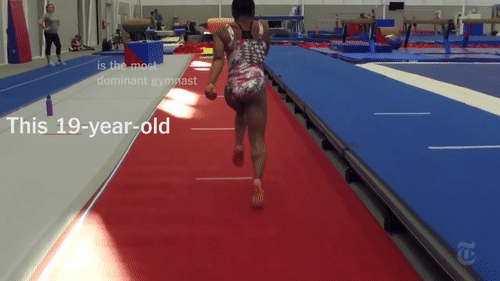


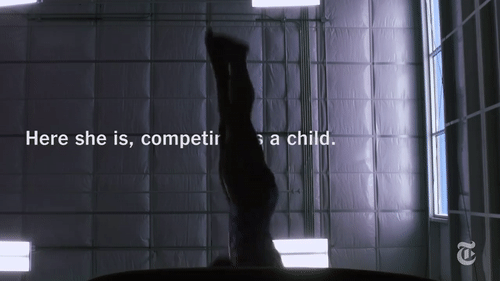
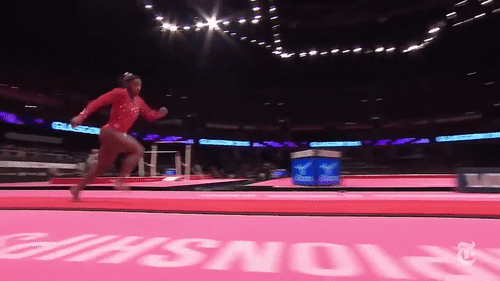
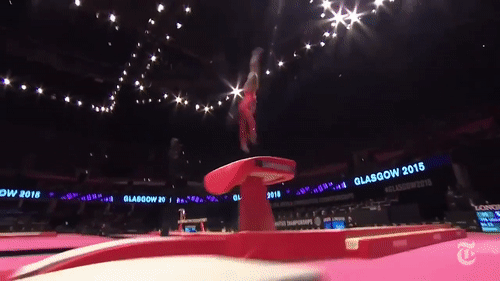
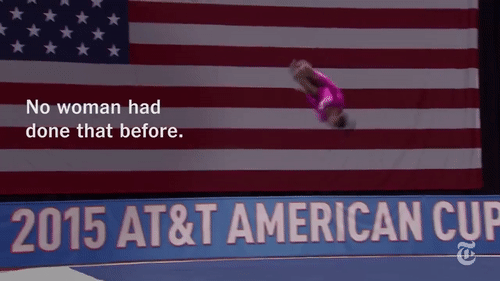
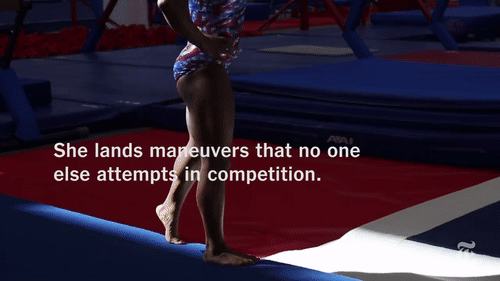
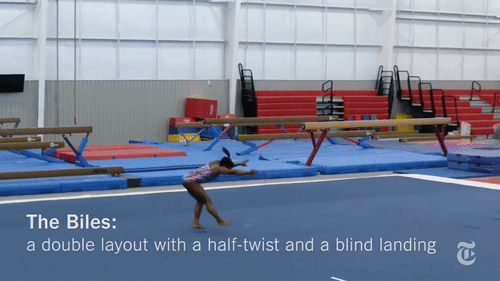
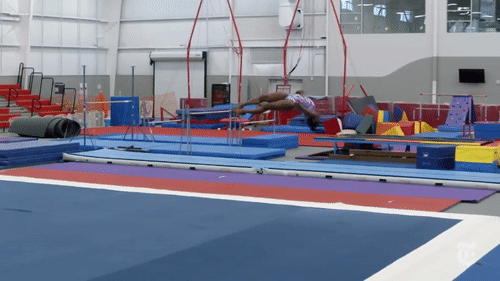

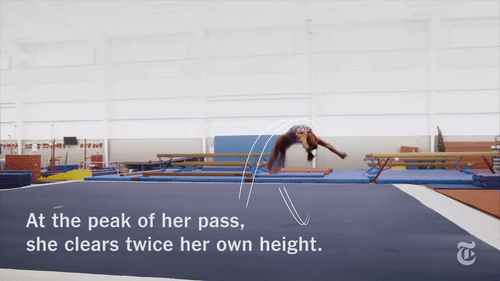

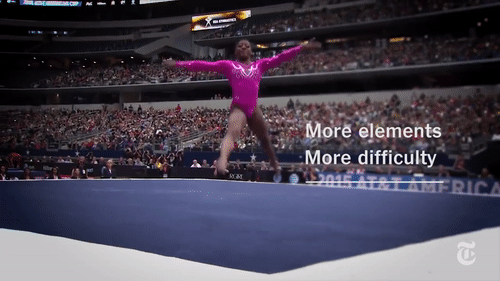



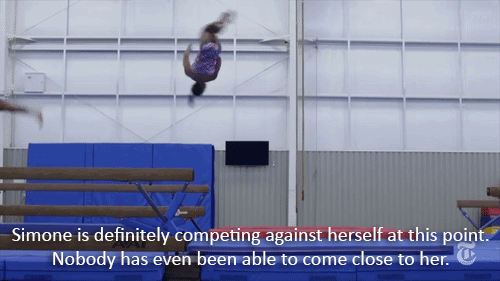
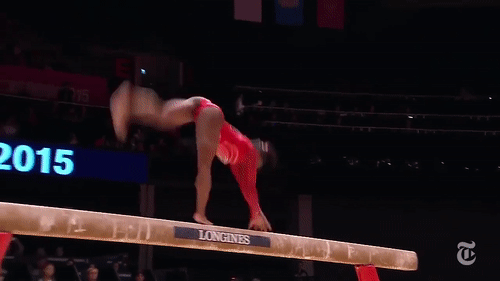
In honor of 19-year-old Simone Biles being named Woman Of The Year by ESPN.
She won a record four gold medals at the Olympics. She’s untouchable!
Congratulations!
-
 nupesolo1 liked this · 11 months ago
nupesolo1 liked this · 11 months ago -
 cookieemonsterrr liked this · 11 months ago
cookieemonsterrr liked this · 11 months ago -
 smoulderingcoals reblogged this · 11 months ago
smoulderingcoals reblogged this · 11 months ago -
 theresnosafeharbor4myships reblogged this · 11 months ago
theresnosafeharbor4myships reblogged this · 11 months ago -
 swept-away-sands liked this · 11 months ago
swept-away-sands liked this · 11 months ago -
 skyangel18 liked this · 11 months ago
skyangel18 liked this · 11 months ago -
 trulycharmed8 reblogged this · 11 months ago
trulycharmed8 reblogged this · 11 months ago -
 4everships reblogged this · 11 months ago
4everships reblogged this · 11 months ago -
 4everships liked this · 11 months ago
4everships liked this · 11 months ago -
 jojam10 liked this · 11 months ago
jojam10 liked this · 11 months ago -
 memcjo reblogged this · 11 months ago
memcjo reblogged this · 11 months ago -
 sunflowersunshine04 liked this · 11 months ago
sunflowersunshine04 liked this · 11 months ago -
 motherscarf liked this · 11 months ago
motherscarf liked this · 11 months ago -
 the-pink-weirdo liked this · 11 months ago
the-pink-weirdo liked this · 11 months ago -
 thatonekimgirl reblogged this · 11 months ago
thatonekimgirl reblogged this · 11 months ago -
 pseuddamntired liked this · 1 year ago
pseuddamntired liked this · 1 year ago -
 silv3rclouds liked this · 1 year ago
silv3rclouds liked this · 1 year ago -
 ginarose4ever liked this · 1 year ago
ginarose4ever liked this · 1 year ago -
 teaceremonial reblogged this · 1 year ago
teaceremonial reblogged this · 1 year ago -
 teaceremonial liked this · 1 year ago
teaceremonial liked this · 1 year ago -
 th33bab33 reblogged this · 1 year ago
th33bab33 reblogged this · 1 year ago -
 the-fandom-life-forever liked this · 1 year ago
the-fandom-life-forever liked this · 1 year ago -
 thatonekimgirl liked this · 1 year ago
thatonekimgirl liked this · 1 year ago -
 lightofthefirefly reblogged this · 1 year ago
lightofthefirefly reblogged this · 1 year ago -
 invasionzames reblogged this · 1 year ago
invasionzames reblogged this · 1 year ago -
 invasionzames liked this · 1 year ago
invasionzames liked this · 1 year ago -
 finch-the-fungi reblogged this · 1 year ago
finch-the-fungi reblogged this · 1 year ago -
 finch-the-fungi liked this · 1 year ago
finch-the-fungi liked this · 1 year ago -
 juju-fisher reblogged this · 1 year ago
juju-fisher reblogged this · 1 year ago -
 isthis-a-crossoverepisode liked this · 1 year ago
isthis-a-crossoverepisode liked this · 1 year ago -
 thermostatic liked this · 1 year ago
thermostatic liked this · 1 year ago -
 xxdoompatrolxx liked this · 1 year ago
xxdoompatrolxx liked this · 1 year ago -
 peemil liked this · 1 year ago
peemil liked this · 1 year ago -
 whimsicalwishes2010 reblogged this · 1 year ago
whimsicalwishes2010 reblogged this · 1 year ago -
 sugarkat liked this · 1 year ago
sugarkat liked this · 1 year ago -
 joeys-pizza liked this · 1 year ago
joeys-pizza liked this · 1 year ago -
 madrielite liked this · 1 year ago
madrielite liked this · 1 year ago -
 rosyoxymoron liked this · 1 year ago
rosyoxymoron liked this · 1 year ago -
 nukedrobotchris reblogged this · 1 year ago
nukedrobotchris reblogged this · 1 year ago -
 nukedrobotchris liked this · 1 year ago
nukedrobotchris liked this · 1 year ago -
 ohmeimthebosscalifornia liked this · 1 year ago
ohmeimthebosscalifornia liked this · 1 year ago -
 ohmeimthebosscalifornia reblogged this · 1 year ago
ohmeimthebosscalifornia reblogged this · 1 year ago -
 honei-silk reblogged this · 1 year ago
honei-silk reblogged this · 1 year ago -
 the-bitch-in-the-tower liked this · 1 year ago
the-bitch-in-the-tower liked this · 1 year ago -
 sadstrange-littlequeer reblogged this · 1 year ago
sadstrange-littlequeer reblogged this · 1 year ago -
 britkunoichi92 liked this · 1 year ago
britkunoichi92 liked this · 1 year ago
More Posts from Featherofeeling
I assumed that Flint's Treasure Island death was just a rumor is Black Sails-verse, just because tonally it doesn't make a whole lot of sense. And Jack Rackham's whole ending monologue is about how stories diverge from fact over time, which allows for wiggle room between the show and book.
Listen the heartbreaking thing is that Treasure Island is James Flint’s greatest fear. He says in the absolutely iconic Freedom in the Dark speech that I am still not over
“We will have been for nothing. Defined by their histories distorted to fit into their narrative until all that is left of us are the monsters in the stories they tell their children.”
And that is what happens. That is what Treasure Island is: the definitive pirate story, in which Captain Flint is nothing more but a monster. A novel that almost every child reads….Flint literally becomes a monster in the stories they tell their children. A man who tried to change things, to destroy the myth of the inevitability of empire, to remake the new world…becomes a monster in that empire’s stories.
Well great, anon, now I’m crying.
I mean, the entirety of Black Sails is about stories. The irony is that the reason James is so effective as Flint is precisely because of the myth he himself creates around Flint - and yet in that myth, he is the monster. He has to be, that’s the only way that myth retains power. That label plagues him, as John Silver points out to him (John Silver, conveniently, is “not int he least bothered by whatever labels anyone decides to afix to you.” This doesn’t change - his “I don’t care” in response to Flint’s speech in 4x10 is literally the same sentiment). Part of what makes the war/rebellion so effective is the story of Long John Silver that Billy comes up with. Jack is absolutely obsessed with the reputation he’ll have and the stories they’ll tell about him - seriously, it’s a running gag, and when he goes to Philadelphia he realizes just how much those stories get twisted.
The thing is, queer people have always struggled to tell their own stories, from their perspective. Stories in which they’re not monsters or predators, in which they aren’t insane or diseased or wrong or perverted. Stories in which they don’t die. Stories of their lives as they are. I could come up with dozens of examples. The way that queer people are told “don’t shove it in our faces” while the media is covered with heterosexuality. The way that an entire generation of queer people was lost to the AIDS crisis because the government completely ignored it - and their lives and their stories and their experiences create a glaring gap. The way that Forster’s novel about two gay men who get a happy ending, Maurice, couldn’t be published until after his death, in the 1970s, even though it was written in 1914. The way that the queer character always dies, or the queer couple never gets a happy ending in the media, with very few exceptions. The way that queerness is coded as monstrous in horror cinema. I mean, I could go on for a while here.
Flint, in his “Freedom in the Dark” speech, is talking about exactly that. He is a queer man who is fighting for (among other things, including, yes, revenge fueled by rage) the right to be who he is without shame, who implores John Silver to not go down in history as a monster - and John Silver, who is, as far as I can tell, a straight man, looks him in the eyes and says “I don’t care.” Another queer story is erased, told in such a way as to profit those in power.
In a way, then, since Black Sails is the prequel to Treasure Island, I suppose John Silver’s choice was predictable (though hindsight is 20/20). Treasure Island is the story that we’re left with about what happened, and the finale tells us how that story came about.
So yes, Treasure Island is absolutely fake news and untrue and not what actually happened, but on a kind of meta-level, that very fact is still super important, because the story that gets left behind, even if it’s not actual fact, is important. You could say the whole story of Black Sails is the tragedy of queer stories being erased, of Black Sails being transformed into Treasure Island by those who wield power. And those stories have power - even if they’re not true, they affect things. They change things. James Flint knows this, and that is why he is so scared of going down as a monster in their stories.
There’s a lot of interesting history in the ways that urban planning and infrastructure development have been used to reinforce racism. Robert Moses, the guy who designed the roadways in New York City, made the bridges on the Long Island Parkway too low for the city busses at the time to go under, because he wanted to prevent the type of people who ride buses (wink, nudge) from getting to the wealthy white beachfront properties he was developing. He did a lot of other stuff like that to make it so that, in the most literal sense possible, the city was physically hostile to black people
OK, I’m jumping in here in support of a little less virtue. John Adams was wrong. The whole foundation of the liberal arts education for leaders is that a person who studies Arts, Literature, Poetry, Philosophy, and Architecture will be better able to legislate, administer, and negotiate. Because of stories, they will know how people work and will be better at bringing them together to accomplish great things. Because of stories that give them empathy for people different from themselves, they will have a better chance of governing for everyone - and including everyone in the processes of governance. Because of expressive arts, they will have the capacity to imagine possibilities for new social relations, ones that were never written in those textbooks of Politicks and War. And incidentally, because of all of those areas plus Gender and Ethnic Studies, John Adams’s granddaughters and the people who were enslaved at the time he wrote this will have the right to study anything they damn well please and so to demand a place at the table of Politcks.
I do work in a field that includes human rights. My Master’s degree was in conflict: I studied war, genocide, racism, and other systems of pervasive violence, and I also studied strategies and theories for ending and transforming that violence. The classes on narrative change, mind-body connection, and improv theatre were some of the most useful I had. Why? They helped me get actual tools for things that actually work to move people. The famous peacebuilder John Paul Lederach, who has worked in conflict zones from Colombia to Nepal, has a fantastic On Being interview about the “Art of Peace.” That and his book The Moral Imagination talk about just how vital are all the ways of relating to life we humans have at our disposal, especially things like storytelling, to facing violence. To making the unlikely connections with others which could save us when violence comes. To imagining a future of living together with our worst enemies, then working towards it. To building a life and even thriving after war.
Do you know that Lynn Hunt’s book Inventing Human Rights: A History theorizes that European declarations of human rights came about because a whole lot of Europeans started reading novels? They developed a stronger capacity to empathize with the interior lives of people very different from them, and demanded protection of individuals through law even as protection via communities was declining.
Surviving women leaders of the Black Panther Party have spoken about this. They know that social change movements that want their cause - and their members - to survive long enough to bring about the change they’re seeking need to make space for spirit, art, and living. I recently heard Angela Davis say at a conference that the Black Panthers were convinced they would bring about a revolution tomorrow, in a year, maybe two, and that they had to live entirely for the people. Well, the forces against revolution were stronger than they thought, and sustaining that living-only-for-the-change mentality destroyed or undermined so many activists along the way. Now, she says she wants young activists to listen to BPP activsit Ericka Huggins, who had been calling all along for other members to make time in their lives for spiritual practice.
"It was [Ericka Huggins] who said we couldn't be free unless we had the tools to imagine our connection with each other.”
- Angela Davis, NACRJ conference 2017
I don’t think my "arts and passions are Important Too!” is a carte blanche to just bury our heads in the sand and do our favorite things without paying attention to current problems. But not all change is made by going at it head-on. I think that if we follow the paths that unfold from our particular passions, and especially stories and arts, where they most call us, even when we don’t understand where they’re going - if we keep working on and sharing the gifts we find within ourselves - if we reach out and offer our passions to those who are working on more directly helping humanity and those who are suffering right now - we’ll actually stand a chance at surviving and thriving as a collective whole.
For myself, when I stop short of answering that inner call to pursue something fiercely (maybe because I don’t trust where it’s leading me, maybe because I think it’s frivolous), and I distract myself with other things, I deny the world the chance to find a use for my gifts and passions. When I pursue The Thing until it takes me somewhere unexpected, I have often found there’s someone waiting there and what I have is exactly what they need.
I wish I were fascinated with things that are objectively good and help humanity and not frivolous bullshit
like if I could work in the field of human rights and have that genuinely be my passion rather than something I’d be doing out of a sense of obligation
I feel so guilty for liking the things I like, not because they’re actually harmful but because they’re not virtuous enough
Especially appreciate the bit about learning to interact with people of different ages as peers. That meant so much to me as a teenager in Harry Potter fandom, that I could participate (haltingly, a little) in meta discussions about identities and literary analysis and all this important stuff with people who’d spent decades writing fic or hosting sites or who were getting their doctorates in fandom studies. Going to my first con and meeting and getting encouragement from “adults” there. And yeah, messing up once and sending something to a BNF I liked which I thought she’d think was funny...who hated it on the grounds that it was insulting to female characters, and who told me so. It made me feel sad that she didn’t like the interaction with me, but I learned to not be so confident that my (somewhat righteous) way of seeing something was everyone’s.
That said...OP has a good point about taking into consideration the ages of people involved in a direct conversation. Thinking how someone of a different age might take something you/we say to them is just part of being good at communication - there’s the thing you mean, and then there’s the thing you say, and then there’s the way the receiver understands it, and good communication is always about figuring out how to align the first with the last. I remember really looking up to older people in fandom and being incredibly timid about being accepted as a peer if I even chimed in on an innocuous discussion thread. I’d want to show a little grace and patience with someone who’s newer to fandom or who might be inclined to take something I told them very much to heart, if I ended up in an argument or something of that nature. It’s not an obligation - putting in special effort for communication never really is - but it might be nice to take a second and remember what it was like for you to interact with adults in fandom.
Oh, and I actually have no idea what the fandom wank in question is about, so this is very much a general observation. Not everyone in fandom always knows everything that’s going on!
like, i’m not saying that adults don’t have a place in fandom. they can and they do, and many are perfectly great people.
but if you’re an adult, say, in your mid to late 20s or older, especially if you’re in a fandom that’s filled mostly with teenagers, you do need to be careful about how you interact with young people in fandom.
you need to be careful about the content you produce or share, and if you do something that people take issue with, you need to be prepared to address that in an honest and meaningful way, instead of blocking the young people who are telling you you’ve done something wrong and going on a rant about how “it’s just fiction” and “ship and let ship” and “do whatever you want” and “i’m too old for this.”
if you’re an adult in fandom, you need to be able to recognize how the content you produce might affect young people, and honestly, you should be able to show maturity when dealing with it, because you are still an adult talking to many people who are literal children.
many of those young people will, by default, view you as a sort of authority figure based on your age alone, as that’s what they’re used to. be careful of the lessons you teach them.
Gather round, children. Auntie Jules has a degree in psychology with a specialization in social psychology, and she doesn’t get to use it much these days, so she’s going to spread some knowledge.
We love saying representation matters. And we love pointing to people who belong to social minorities being encouraged by positive representation as the reason why it matters. And I’m here to tell you that they are only a part of why it matters.
The bigger part is schema.
Now a schema is just a fancy term for your brain’s autocomplete function. Basically, you’ve seen a certain pattern enough times that your brain completes the equation even when you have incomplete information.
One of the ways we learned about this was professional chess players vs. people who had no experience with chess.
If you take a chess board and you set it up according to a pattern that is common in chess playing (I’m one of those people who knows jack shit about chess), and you show it to both groups of people, and then you knock all the pieces off the board, the pro chess players will be able to return it to its prior state almost perfectly with no trouble, because they looked at it and they said, “Oh, this is the fifth move of XYZ Strategy, so these pieces would be here.”
The people who don’t know about chess are like, “Uh, I think one of the horses was over here, and maybe there was a castle over there?”
BUT, if you just put the pieces randomly on the board before you showed it to them, then the amateurs were more likely to have a higher rate of accuracy in returning the pieces to the board, because the pros are SO entrenched in their knowledge of strategy patterns that it impairs their ability to see what is actually there if it doesn’t match a pattern they already know.
Now some of y’all are smart enough to see where this is going already but hang on because I’m never gonna get to be a college professor so let me get my lecture on for a second.
Let’s say for a second that every movie and TV show on television ever shows black men who dress in loose white T-shirts and baggy pants as carrying guns 90% of the time, and when they get mad, they pull that gun out and wave it in some poor white woman’s face. I mean, sounds fake, right? But go with it.
Now let’s say that you’re out walking around in real life, and you see a black man wearing a white T-shirt and loose-fitting jeans.
And let’s say he reaches for something in his pocket.
And let’s say you can’t see what he’s reaching for. Maybe it’s his wallet. Maybe it’s his cell phone or car keys. Maybe it’s a bag of Skittles.
But on TV and movies, every single time a black man in comfortable, casual clothes reaches for something you can’t see, it turns out to be a gun.
So you see this.
And your brain screams “GUN!!!” before he even comes up with anything. And chances are even if you SEE the cell phone, your brain will still think “GUN!!!” until he does something like put it up to his ear. (Unless you see the pattern of non-threatening black men more often than you see the narrative of them as a threat, in which case, the pattern you see more often will more likely take precedence in this situation.)
Do you see what I’m saying?
I’m saying that your brain is Google’s autocomplete for forms, and that if you type something into it enough, that is going to be what the function suggests to you as soon as you even click anywhere near a box in a form.
And our brains functioning this way has been a GREAT advantage for us as a species, because it means we learn. It means that we don’t have to think about things all the way through all the time. It saves us time in deciding how to react to something because the cues are already coded into our subconscious and we don’t have to process them consciously before we decide how to act.
But it also gets us into trouble. Did you know that people are more likely to take someone seriously if they’re wearing a white coat, like the kind medical doctors wear, or if they’re carrying a clipboard? Seriously, just those two visual cues, and someone is already on their way to believing what you tell them unless you break the script entirely and tell them something that goes against an even more deeply ingrained schema.
So what I’m saying is, representation is important, visibility is important, because it will eventually change the dominant schemas. It takes consistency, and it takes time, but eventually, the dominant narrative will change the dominant schema in people’s minds.
It’s why when everyone was complaining that same-sex marriage being legal wouldn’t really change anything for LGB people who weren’t in relationships, some people kept yelling that it was going to make a huge difference, over time, because it would contribute to the visibility of a narrative in which our relationships were normalized, not stigmatized. It would contribute to changing people’s schemas, and that would go a long way toward changing what they see as acceptable, as normal, and as a foregone conclusion.
So in conclusion: Representation is hugely important, because it’s probably one of the single biggest ways to change people’s behavior, by changing their subconscious perception.
(It is also why a 24-hour news cycle with emphasis on deconstructing every. single. moment. of violent crimes is SUCH A TERRIBLE SOCIETAL INFLUENCE, but that is a rant for another post.)